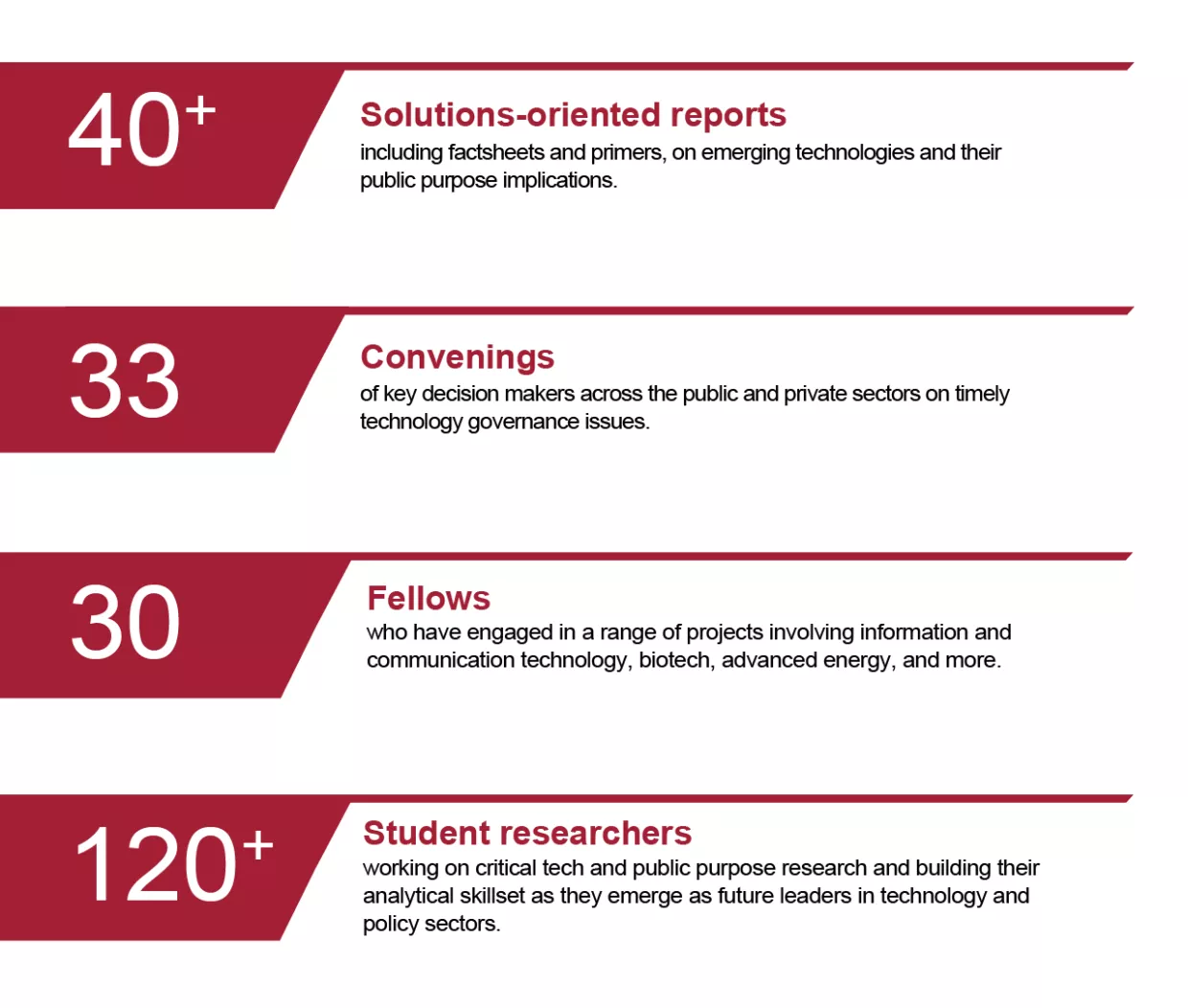
Technology and Public Purpose
-
Faculty Director

-
Principal Investigator

About TAPP
The Technology and Public Purpose (TAPP) project at the Belfer Center worked to ensure that emerging technologies are developed and managed in ways that serve the overall public good.
Under the leadership of the late Ash Carter, the research-to-action project believed:
- Technology's advance is inevitable, and it often brings with it much progress for some. Yet progress for all is not guaranteed. We have an obligation to foresee the dilemmas presented by emerging technology and to generate solutions to them.
- There is no silver bullet; effective solutions to technology-induced dilemmas require a mix of government regulation and tech-sector self-governance.
- Ensuring a future where public purpose drives innovation requires the next generation of tech and policy leaders to act; we must support and inspire them to implement sustainable solutions and carry the torch.


Confrontation or Collaboration?
Should the CIA have briefed Congress on secret intelligence programs? What is the legal basis for the President's electronic surveillance program? Is the DNI actually in charge of the Intelligence Community?
The goal of Confrontation or Collaboration is to provide a guide to the complexities of the Intelligence Community to policymakers, legislators, students and the public. We hope this book leads to more informed debates and decisions about critical national security issues facing our nation.
Project Impact
Through its tenure, the Technology and Public Purpose project worked to:
- Design resources and practical solutions to the dilemmas of technological change in the digital domain, biotech, jobs and training sectors;
- Engage and convene leaders from research universities, tech industry CEOs and senior scientists, entrepreneurs, current and former policymakers, and experts in law, regulation, and ethics, in a non-political, analysis-based forum where they could meet, talk, and solve problems; and
- Train and inspire a new generation of technology leaders and thinkers to make advancing public purpose a part of their life calling.







